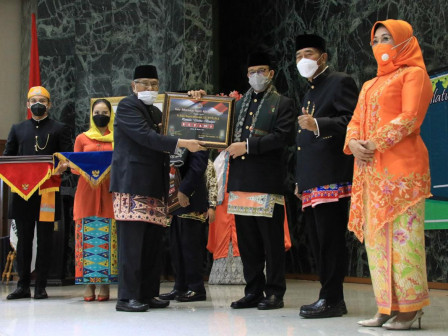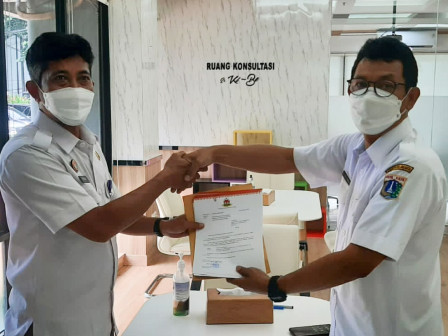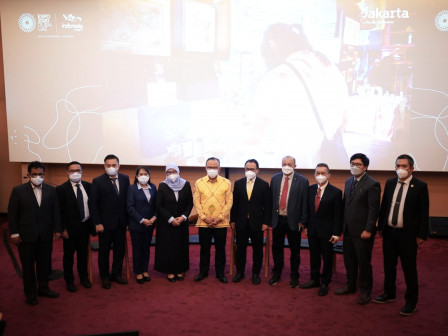Fauzi Bowo: Formulation of Law on Jakarta Specificity Must Reflect Future Needs
Reported by Aldi Geri Lumban Tobing | Translated by Maria Inggita
The future of Jakarta's development continues to be discussed along with the plan to relocate the Nusantara Capital City (IKN) to Penajam Paser Utara, East Kalimantan.
It needs a serious desire to develop the best and realistic legal basis that can be implemented for the future of Jakarta
The former Jakarta Governor for the 2007-2012 period Fauzi Bowo or called Foke assessed that an important foundation was needed in the formulation of the New Jakarta as a legal basis.
For instance, things related to Jakarta's position or status, whether it still contains characteristics of a special region to the structure of autonomous government at provincial or city level.
Jakarta Business Forum at Expo 2020 Dubai Offers Various Investment Projects"As well as the special relationship between the center with Jakarta Government and balanced funds. Including the coverage of Jakarta area, is it as wide as it is now or expanded," he said, Wednesday (3/23).
He explained the formulation of the Law on Jakarta Specificity should substantially reflect the needs of Jakarta City in the future. Thus, Jakarta could continue to develop positively as a center of the financial economy, trade and logistics, information industry, center for scientific studies, national history, arts and culture, and so forth.
"It needs a serious desire to develop the best and realistic legal basis that can be implemented for the future of Jakarta," he explained.
He furthered that one example is the scenario of the destruction experienced by New York City, United States in the early 1970s, where various policies decided by the executives and legislature in the city were not conducive, economy and business were very bad.
Likewise, the inflation rate was out of control with taxes continuing to rise, the regional economy experienced a contraction in unemployment and the crime rate increased.
Moreover, regional income in the city fell sharply, the ability to serve the community also finally collapsed which included aspects of health, education, infrastructure, security, environmental order, and so forth.
"As a result, there is no investment activity. Many big companies are moving out of New York because taxes are too high, security is getting worse and infrastructure is being neglected," he conveyed.
The investors would certainly not be interested, he assessed, if the existing regulations were complicated, not transparent, and tiered.
"Those things can be handled. One of them is with a single autonomy at the provincial level," he mentioned.
He explained the city was a living entity that developed dynamically. In the ups and downs of its journey, it would experience two alternative scenarios at a certain time.
The first is a positive growth scenario that leads the city towards a better level of welfare. Second, the decay scenario causes the city to get worse and eventually leads to destruction.
He reminded that the choice of this scenario was entirely in the hands of stakeholders and decision-makers, both executive, legislative, judicial, political parties, scholars, universities, scientific institutions, civil society, social institutions, mass media and social media networks, religious institutions, religious leaders and scholars, and so forth.
"Jakarta is a megacity by any standard. Jakarta is a big city. In this case, stakeholders need to understand the importance of their respective positions in making the right decisions," he stated.
In a democracy, he added, the voice of the people through political parties or parliament would greatly determine the future of a nation, state, and city where they live and work. Therefore, the process should be transparent and involve all stakeholders, especially political parties in DPR RI.
"Scientific studies must be professional. Many bad examples shouldn't be repeated. Don't let it be decided unilaterally and there should be no feta-compliance," he closed.





